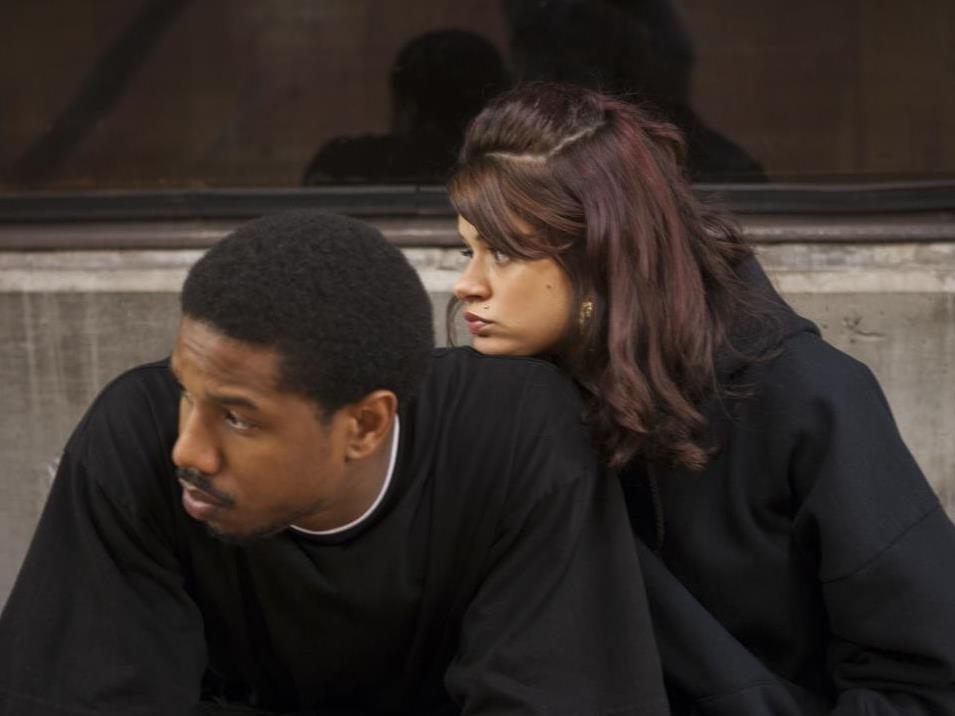Two stories unfold with Fruitvale Station: the shooting tragedy that forms the film’s events, and the committed circumstances surrounding the feature’s making. It is the former that more swiftly immerses audiences in the terrible, tear-jerking true tale; however the latter, too, swells with compassion. The plight of Oscar Grant III simply has that impact – on viewers, and on first-time filmmaker Ryan Coogler.
A graduate student studying cinema when 2008 gave way to the following year, and with it Oscar’s too-short existence, Coogler was inspired to chart the day that would forever be remembered in the titular San Francisco area. He sought support, mentoring and funding, finding it in actor Forest Whitaker and his production company. Coogler’s mission: to broaden the discussion surrounding the situation, not shifting focus from the awful events that transpired, but enlivening the man at its centre. The gripping end result continues to gather accolades, including the Grand Jury Prize for dramatic filmmaking at the 2013 Sundance Film Festival.
December 31, 2008 started as ordinarily as could be expected for 22-year-old Oscar (Michael B. Jordan, Chronicle), with promises of reform – from his former life as once-incarcerated drug dealer, and from his headstrong, always-proud temperament – whispered to his girlfriend Sophina (Melonie Diaz, Save the Date) in a moment of early-morning domestic intimacy. After readying his adoring daughter (Ariana Neal, Footloose) for school, he attempts to stay true to his word, seeking to return to his supermarket job, preparing for his mother’s (Octavia Spencer, Smashed) birthday celebrations, and avoiding the temptation to fall into frowned-upon but financially lucrative patterns. Then, to commemorate the date, he revels in New Year’s Eve festivities with his friends; however, his plans for a better life unravel on a fateful train ride home.
As striking and sensitive as Oscar’s plight is – and as assuredly, rivetingly and never predictably rendered by the confident Coogler, commencing with the real phone-shot footage of the incident, and continuing in its rehash of the lead up as dictated by the demands of Oscar’s own mobile over the course of the day – the emotional undercurrent is never in doubt; though handled with subtlety, this is a film with an obvious, overt arc. And yet, every audience reaction, ranging from hope at his helpful interactions and glimpses of his good nature, to horror at the inevitable end and its grounding in the untoward treatment by transit police, is always earned and never feels too easy. The respectful, restrained ushering of viewers into sympathy is evident, and yet no one will protest at being taken in that direction.
In his first weighty leading role, Jordan is the glue that holds everything together, proving charismatic and confronting in turn. Coogler’s debut writing and direction are unforced, honourable and honest in stitching together the haunted portrait of Oscar, but it is in the lead performance that the film finds its compelling core. Jordan not only fulfils the potential previously glimpsed in TV series The Wire and Friday Night Lights, but exceeds in his inhabiting of the tough and tender protagonist, warts and all. Perhaps there is a third remarkable story in Fruitvale Station, of its star’s exceptional efforts; the real-life figure, and the filmmaker’s efforts in sharing his tale, is nobly commendable, but Jordan gives them a face and a voice.
Rating: 4 stars out of 5
Fruitvale Station
Director: Ryan Coogler
USA, 2013, 85 mins
Release date: 7 November
Distributor: Roadshow
Rated M
Actors:
Director:
Format:
Country:
Release:





